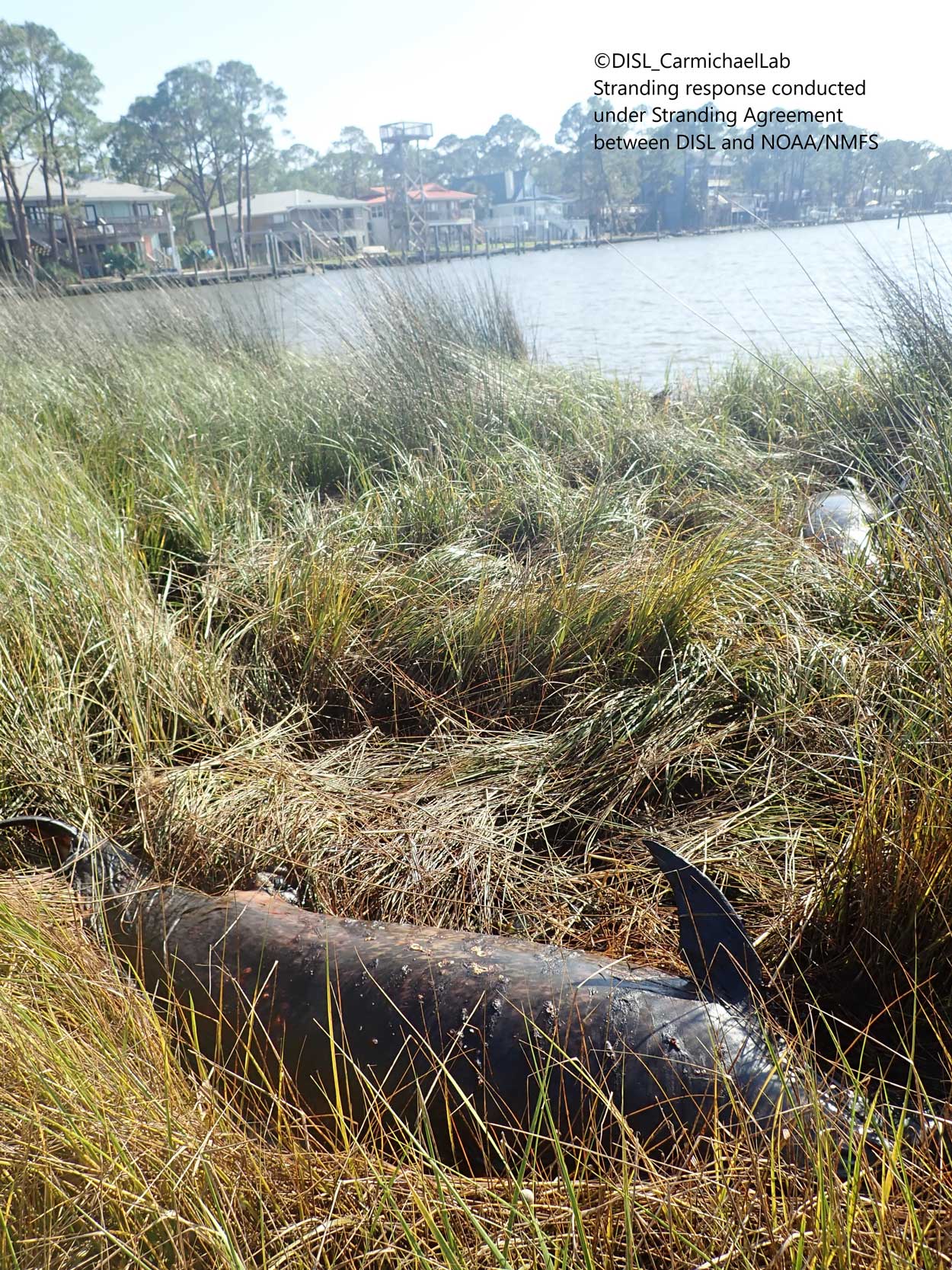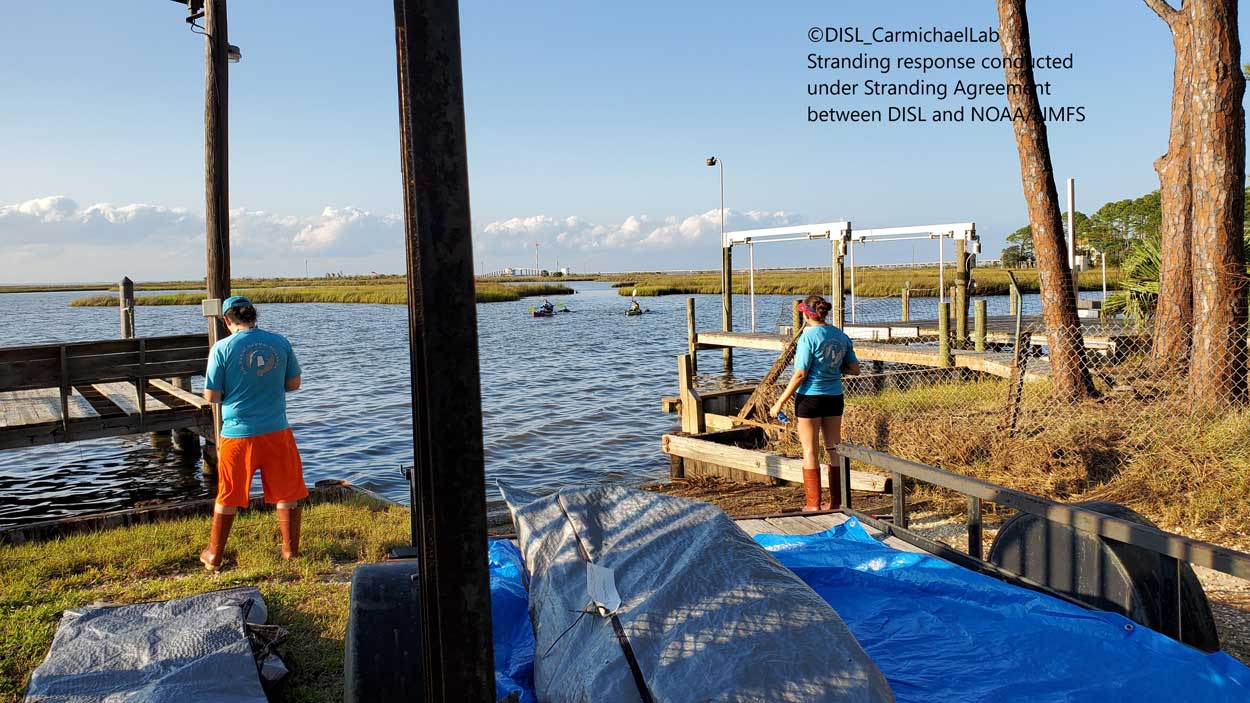(September 29, 2020) --

On Friday, September 25, six Atlantic spotted dolphins (Stenella frontalis) were found deceased in the marsh on the north side of Dauphin Island. This is the first mass stranding of its kind in the state of Alabama. The spotted dolphins, all females, appeared to have stranded alive several days prior to the discovery.
Atlantic spotted dolphins are offshore dolphins that occupy waters along the continental shelf and can also be found in deep, oceanic habitats. They have distinct spots and are smaller than bottlenose dolphins that are commonly seen in the coastal waters of Alabama. It is rare for this species to strand on the coast of Alabama, with the last stranding documented in January of 2018.
“The animals likely came into the Mississippi Sound during Hurricane Sally, after becoming disoriented in the Gulf,” said ALMMSN Stranding Coordinator Mackenzie Russell. “We often see an increase in offshore species of dolphins and whales stranding after large storm events. Unfortunately, these dolphins stranded in a remote marsh location that delayed their discovery and reporting to the stranding network.”

The Alabama Marine Mammal Stranding Network (ALMMSN) is the state network for response and recovery of sick, injured, and deceased marine mammals, such as dolphins and whales. The mass stranding was discovered by a paddle boarder in Graveline Bay near Dauphin Island. Staff from the ALMMSN quickly responded to the scene and located the dolphins. Many of the dolphins were hidden from sight in the tall marsh grass.
All six dolphins were examined at the Dauphin Island Sea Lab’s Marine Mammal Research Center on Saturday.
“The major finding during examination was nearly empty stomachs, indicating the animals had not eaten in some time. Unfortunately, decomposition of the tissues limits our ability to interpret findings, which happens often with deceased animals in the Alabama heat, and highlights the importance of rapid reporting and response,” said ALMMSN Veterinarian Dr. Jennifer Bloodgood.
If you find a sick, injured, or deceased marine mammal in the Southeast United States, please call 1-877-WHALE-HELP (942-5343) as soon as possible. Never push a live stranded animal back into the water because it can prevent trained responders and veterinarians from providing timely care. Mass strandings are rare along the northern Gulf coast, and information collected by ALMMSN from this stranding of will be crucial to better understand the effects of storm events on marine mammals in the Gulf of Mexico.